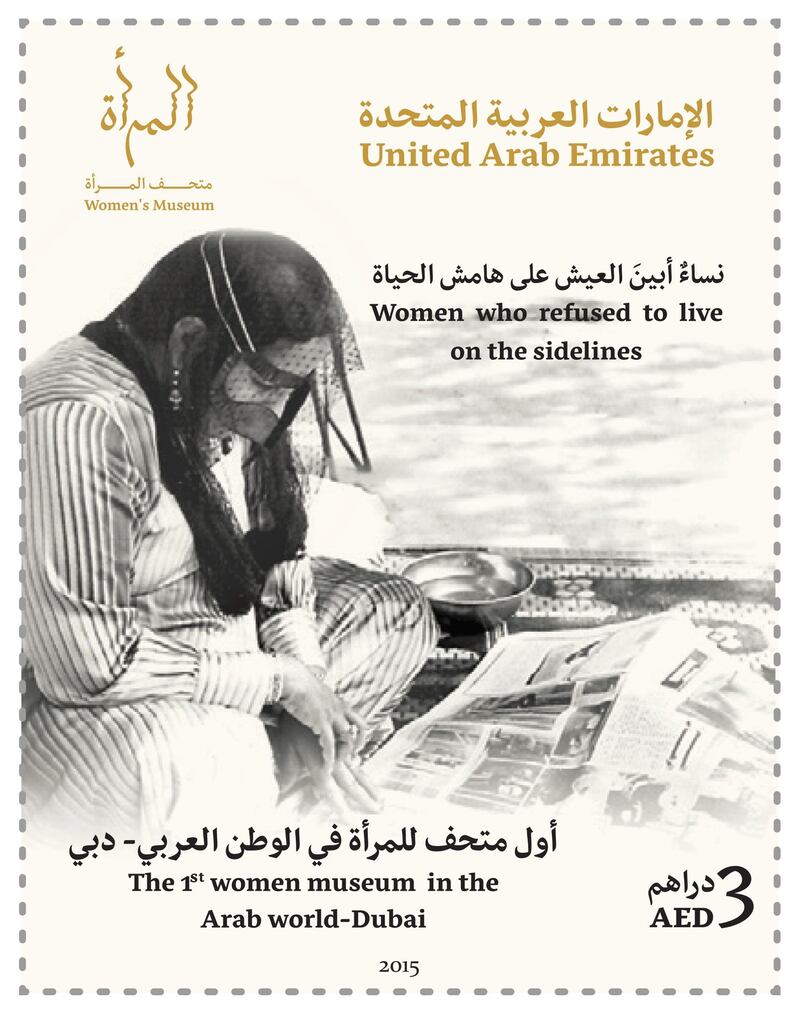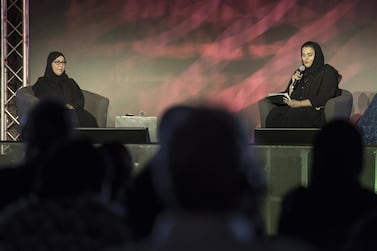Many people have preconceived ideas about women in our region but I’d like to share some insights on women from UAE history who have had a profound influence on our country. Tomorrow marks Emirati Women's Day, which coincides with the establishment of the General Women's Union. It was set up in 1975 by Sheikha Fatima bint Mubarak Al Ketbi, the wife of Sheikh Zayed, to ensure the integration of women within all parts of society. A strong proponent of women's empowerment, she once said: "I believe that women are able to participate in all business fields, proficiently and efficiently."
Those words echoed the thoughts of our Founding Father, who said: "He who does not know his past cannot make the best of his present and future, for it is from the past that we learn."
As the baton passes to the next generation and the next, and the number of those who can recount those early years after union dwindles, it is increasingly important that we rely just as much on a written history as we do on oral storytelling. It is encouraging that, over the last few years, we have seen an increase in books featuring talented women to inspire our children but the history of our own women has been sadly neglected in literature. These women could teach us a great deal about tolerance, entrepreneurship, learning and hard work, so we should take the opportunity to find out more about some of them.
Let’s take the example of Sheikha Hissa bint Mohammed Al Nahyan, the mother of the UAE President Sheikh Khalifa and a woman of great strength and resilience who challenged the status quo. She loved people and her home was always open to all. In a segregated society, it was not common for men to drop in for a courtesy visit, but she welcomed everyone, regardless of gender and nationality. She was a woman who believed in education and hard work.
I remember her saying to me: "You too will work when you finish your studies; it's better than sleeping all day." She had an entrepreneurial streak, selling some of the produce from her farms at the local market, which caused a certain amount of consternation at that time. Not a day goes by without me remembering this great woman. She taught me that I need to strive hard and do good. If there is one phrase that personified her, it would be joie de vivre, because of her irrepressible zest for life.
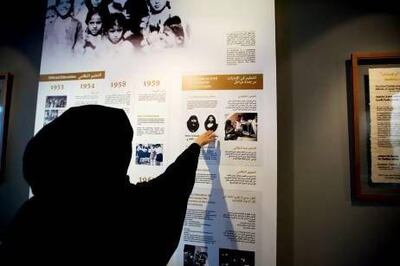
Going further back in time, as the rich database of the National Archives tells us, the widow of Sheikh Hazza bin Zaal made a name for herself as a great political leader by taking over as ruler of Dubai in the 1820s. Sheikha Fakhera bint Hazza sent her nine-year-old son to witness the signing of the agreement between the coastal tribes and the British government. This agreement was signed by Sheikh Zayed bin Saif Al Falahi, her representative. This story shows us that female empowerment is rooted in our culture.
Another inspiring woman, Sheikha Salama bint Butti, the wife of the 20th-century ruler Sheikh Sultan bin Zayed and mother of the Founding Father, was known as “the most influential lady on the Trucial Coast" by British officials at the time. She lived through the 1920s and 1930s, one of the worst periods of economic depression. She sadly lost her husband and was left to raise her four sons as a single mother. Writing about her in the 1960s, Edward Henderson and other British diplomats considered her to have had “the most influence of all”.
Like other women from the Bani Yas tribe, Sheikha Salama was actively involved in political affairs, able to participate freely in all matters, advising and assisting her male counterparts, especially during difficult times. As a mother, she raised her sons on the simple principles of frugality, honour and dignity. It should come as no surprise when you read about our Founding Father to discover how active a part she played in her son’s upbringing.
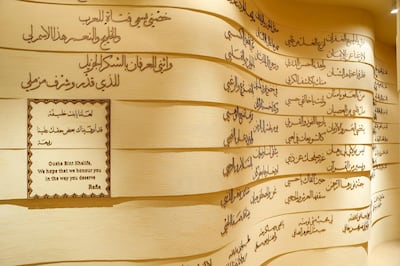
I have also been told about Sheikha Sanaa bint Mana bin Rashid Al Maktoum, who was born in Dubai in the first half of the last century. A keen linguist and a poet, she was fluent in English, which was very rare for women in the UAE in the 1950s, and she also studied French. Ahead of her time, she learned to use a computer to track her finances. She died in Dubai in 2006 and her granddaughter remembers her as “an impeccable soul who raised many generations and provided a gateway for women in our society”.
In the same sphere of literature, we must of course mention the famous poetess Ousha bint Khalifa Al Suwaidi, who would skillfully craft beautiful nabati poems. She sadly died last year at the age of 98. Her poetry travelled around many Gulf countries, opening up channels of communication with neighbouring nations. In one account, she encouraged other poetesses to come forward and publish their poems, which led a fellow poet to share her words. We should all learn from her example and support one another in the same way to achieve great things.
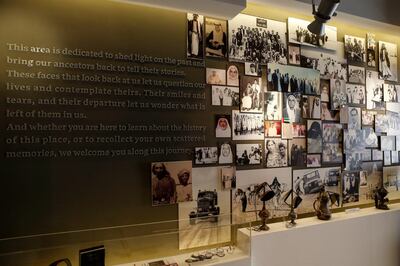
There are many stories that have been passed down from generation to generation, which show how our women were empowered and able to play an active role in society, shaping the nation as we know it today. You only have to look at the past to realise that we have the ability to bridge the gender parity gap by working together.
In an attempt to capture stories before they are lost forever, I hope readers too will participate by sending any stories they know about strong Emirati women for the project called Her Story. I urge you all to write down these stories as we are at risk of losing a treasure trove that should be passed down to future generations.
Sheikha Shamma bint Sultan bin Khalifa Al Nahyan is chief executive officer of Alliances for Global Sustainability. If you would like to contribute to Her Story, email herstory@royalpublishinghouse.com
